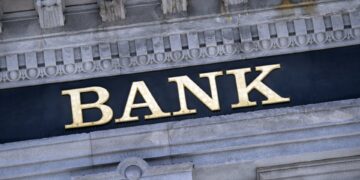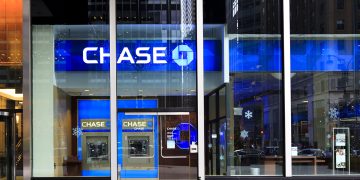COVID-19 has crippled and toppled many businesses, most notably restaurants, hospitality and retail shops.
Yet a handful of Upper Valley enterprises had a pretty good year — if not a great year — financially speaking, lifted by products or services that suddenly were in high demand during the pandemic.
King Arthur Baking Co. saw its flour sales mushroom as people stayed home and baked. The local real estate market boomed as out-of-state “COVID refugees” immigrated to the Upper Valley for the healthy environment afforded by a rural community. Food co-ops had banner years, and Vermont slaughterhouses, driven by demand for locally raised meat, were turning away livestock farmers because their kill floors were booked to capacity.
Now add to the list stalwart Upper Valley financial institutions Mascoma Bank and Ledyard National Bank. Both emerged from 2020 in exceptionally strong shape, according to financial reports they are required to file with the Federal Reserve Bank.
“The year for community banks ended much better than many of us thought it would when the pandemic started, when there was tremendous uncertainty about where the pandemic and economy were going to go, ” Clayton Adams, chief executive of Mascoma Bank, told me. “The credit portfolio of banks in our region has held up well.”
The banks’ results are directly tied to the government rescue financial efforts aimed at businesses and families, as well as historically low interest rates that helped to fuel the home-buying market and mortgage refinancing.
A look at benchmark numbers indicates just how good a year 2020 was for Mascoma and Ledyard — one boosted, in no small measure, by fees earned from a boom in refinancing mortgages and thousands of households depositing their stimulus checks, and businesses their Paycheck Protection Program funds, in their bank accounts.
Ledyard’s net income increased 16% to $6.9 million in 2020 while assets — broadly deposits and securities the bank holds — swelled 40% to $683.4 million. Net interest income (what’s remaining after interest expense is subtracted) earned by the bank from mortgages and loans rose 4.3% to $16.8 million. Fee income from selling mortgages to the secondary market jumped 285% to $512,000.
And by the end of the year Ledyard had $27.2 million in PPP loans on its books issued to its customers, a figure that underreports the actual volume of such loans the bank processed because some number of them have already been forgiven and are no longer reflected in the year-end total.
Banking may be considered by many to be a staid profession, but this past year was anything but conventional, noted Kathy Underwood, chief executive of Ledyard. “It was very satisfying to provide meaningful solutions in ways that ranged from PPP loans, mortgage refinances, loan payment deferrals and general financial advice,” she said.
As for Mascoma, which in terms of assets is more than three times the size of Ledyard, the gains were even greater.
Mascoma’s net income leaped 23% to $16.3 million in 2020 while assets rose 23.5% to $2.4 billion. Net interest income increased 7% to $70.9 million while fee income from selling mortgages skyrocketed 448% to $5.3 million.
Meanwhile, at the end of the year, Mascoma showed it had 1,078 PPP loans on its books totaling $97.4 million (the bank processed a total of about 1,500 loans totaling $150 million on behalf of applicants, but more than 400 had been forgiven and taken off the books by year’s end).
Mascoma’s Adams attributes his bank’s gains — which was an industrywide phenomenon in 2020 — to both the hot home sales market and mortgage refinancing onslaught, as well as federal stimulus money that flowed to households and businesses and, by extension, deposit accounts.
People also have less opportunity to spend their money, especially on leisure and entertainment, as they are wary of freely associating in public and destinations are curtailed or closed.
“Our deposits at the bank are way up because people are not spending money, not eating out, not going on vacation. They are in many cases saving the stimulus checks, savings those dollars,” Adams said.
Ledyard’s Underwood said 2021 will present similar challenges, but there is a way to help buttress the local economy.
“We aren’t through this yet,” she said of the pandemic, reminding people to “do business locally. Our businesses need us more than ever.”
Contact John Lippman at [email protected].








